Research Projects
Our research aims at increasing our understanding on the ecological processes securing the environmental sustainability of cropping systems. To achieve this goal, we conduct experiments involving integrated crop-livestock systems, crop rotations, weed ecology and integrated management, and multi-trophic interactions.
Cropland Weed Management Projects
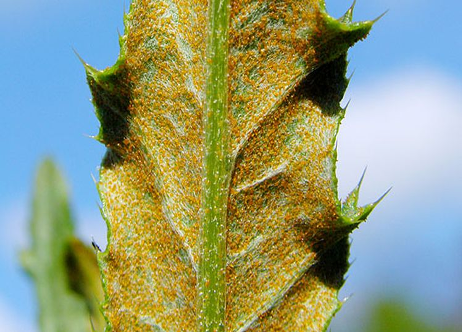
Fungus Biocontrol for Management of Cirsium arvense (Canada thistle) in Organic Cropping Systems
Puccinia punctiformis, or thistle rust, is an obligate parasitic rust fungus that has the potential to reduce the fitness of Canada thistle plants over time. Two associated studies are investigating if thistle rust can be combined with various crop rotations and tillage methods to decrease Canada thistle populations in organic cropping systems in Montana.
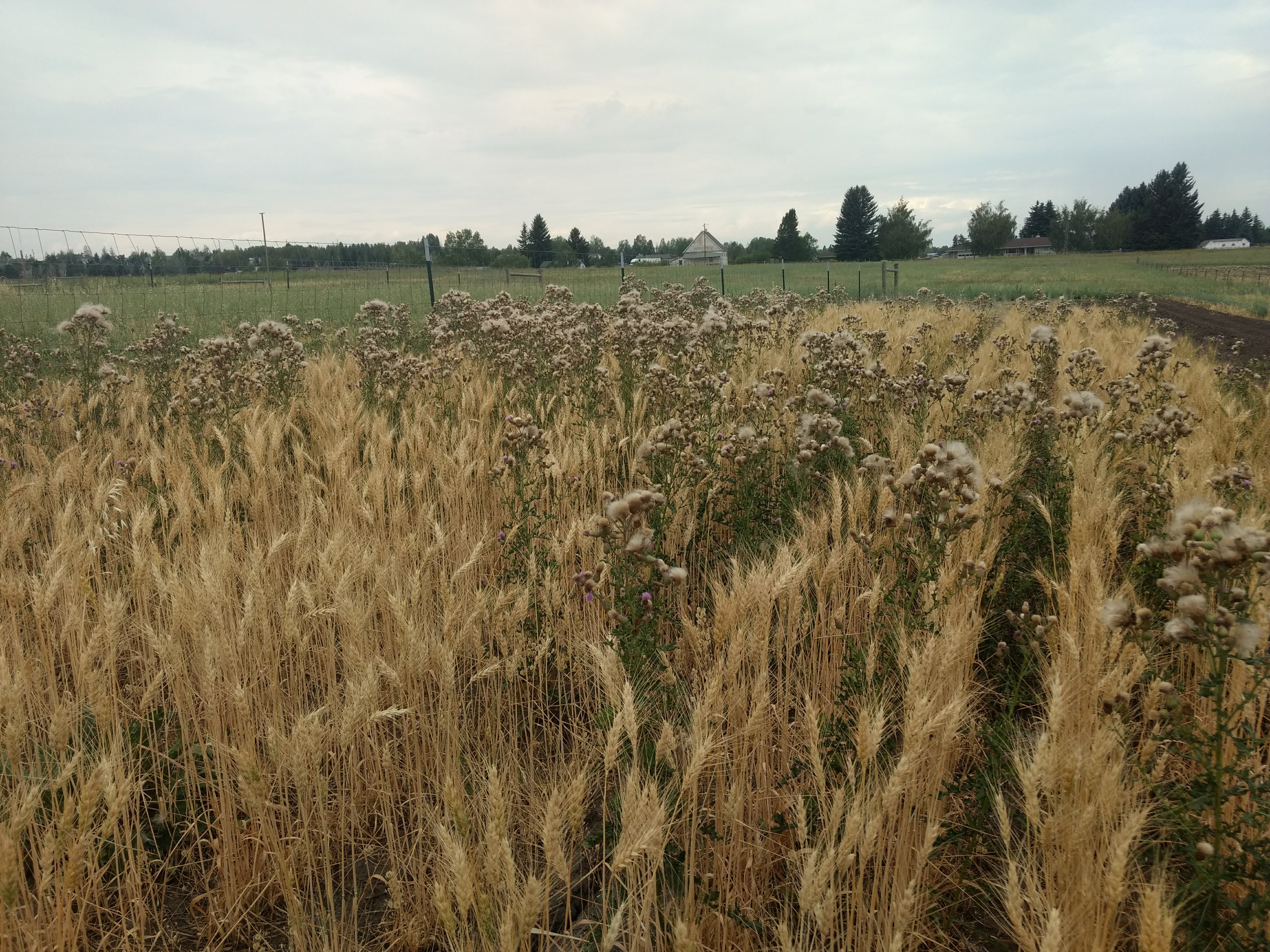
Assessing the Efficacy of Cultural and Mechanical Controls for Suppressing Rhizomatous Perennial Weeds in Organic Systems
The rhizomatous, perennial weeds Canada thistle (Cirsium arvense) and field bindweed (Convolvulus arvensis) present one of the biggest agronomic challenges for organic grain growers in Montana. Both species are difficult to manage given their perennial life histories, extensive root systems, and vigorous growth. Suppression of these weeds requires a multi-strategy, integrated approach, combining biological, cultural, and mechanical controls. We conducted two related field studies which aimed to assess the impact of various crop sequences and tillage methods on rhizomatous perennial weed populations.
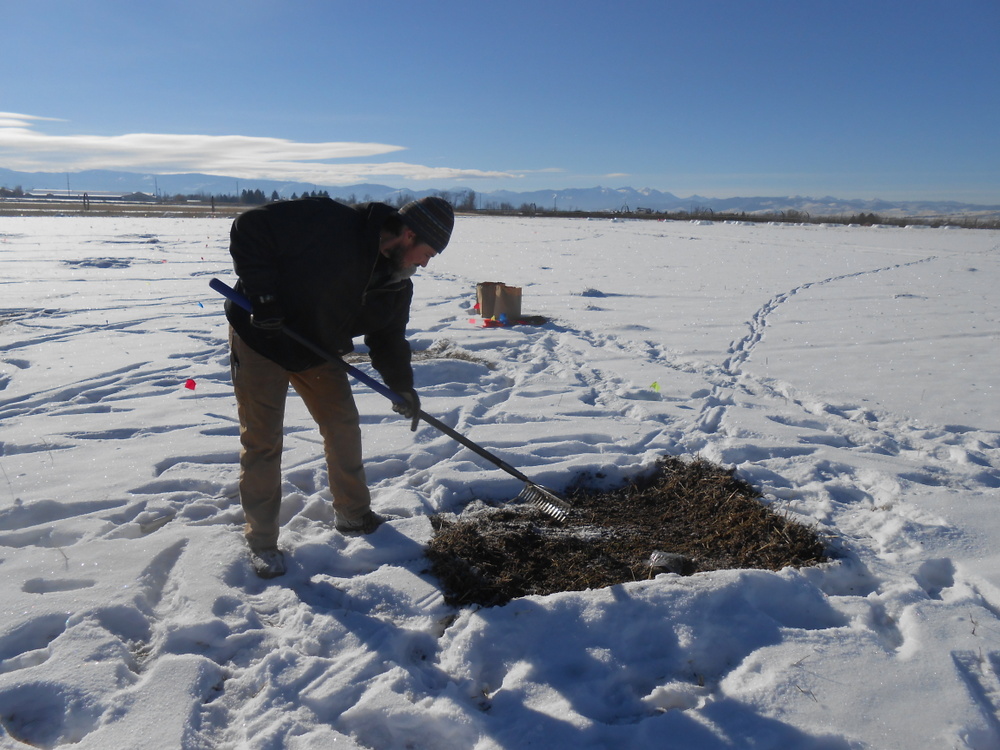
'Many Little Hammers' Approach to Avena fatua (Wild Oat) Management
Multiple herbicide-resistant wild oat is common in the wheat fields of Montana. The compounding effects of herbicide resistant wild oat and soil degradation due to tillage have triggered a need to further research different biological and cultural control methods for wild oat in wheat. A recently completed, two-year project analyzed wild oat performance in response to tall and short isogenic wheat lines, low and high seeding rates, and an annual forage mixture. While wild oat did impact the yield of both wheat and forage crops, the forage mixture was able to resist further wild oat invasion. This suggests that integrating an annual forage phase into a wheat-focused cash crop rotation may help farmers alleviate weed pressure from wild oat.
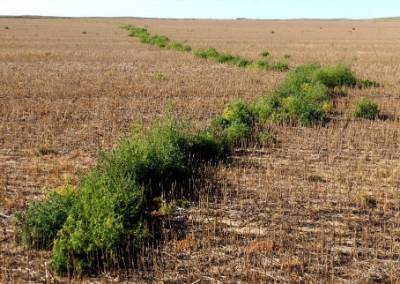
Monitoring Herbicide Resistance in Montana
Herbicide resistant weeds can pose major environmental, economic, and agronomic problems for farmers. In Montana, herbicide resistance has been confirmed in kochia (Kochia scoparia), wild oat (Avena fatua), Persian darnel (Lolium persicum), Russian thistle (Salsola kali), green foxtail (Setaria viridis), horseweed (Conyza canadensis), and cheatgrass (Bromus tectorum). Scientists at MSU closely monitor and track herbicide resistant weed populations from farm fields across the state. Ongoing greenhouse trials, conducted at the Plant Growth Center on campus, continue to assess resistant weed populations and monitor for new pathways of resistance.
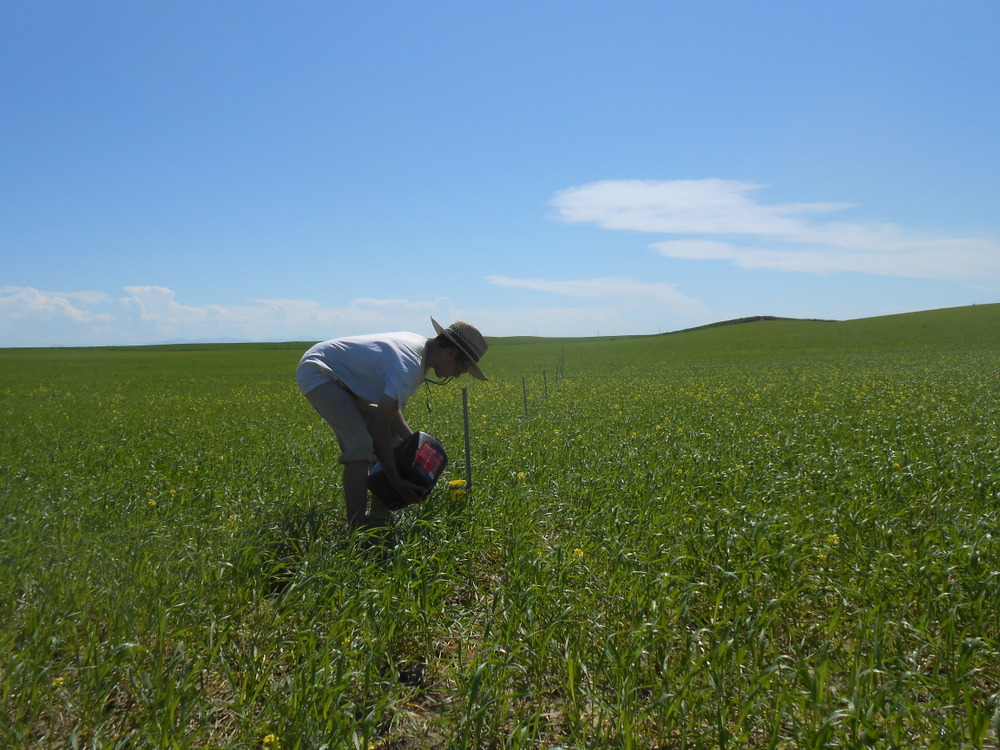
Weed Management in Pulse Crops
Montana is a leading producer of edible dry peas, chickpeas, and lentils. Weeds, especially those with demonstrated herbicide resistance, pose a serious challenge to the logistics and economics of growing pulse crops. Ongoing research projects are investigating the numerous facets of this broad issue, including assessments of management techniques such as harvest weed seed control, as well as the biological underpinnings of problematic weeds through evaluation of weed seed-shattering phenology.
